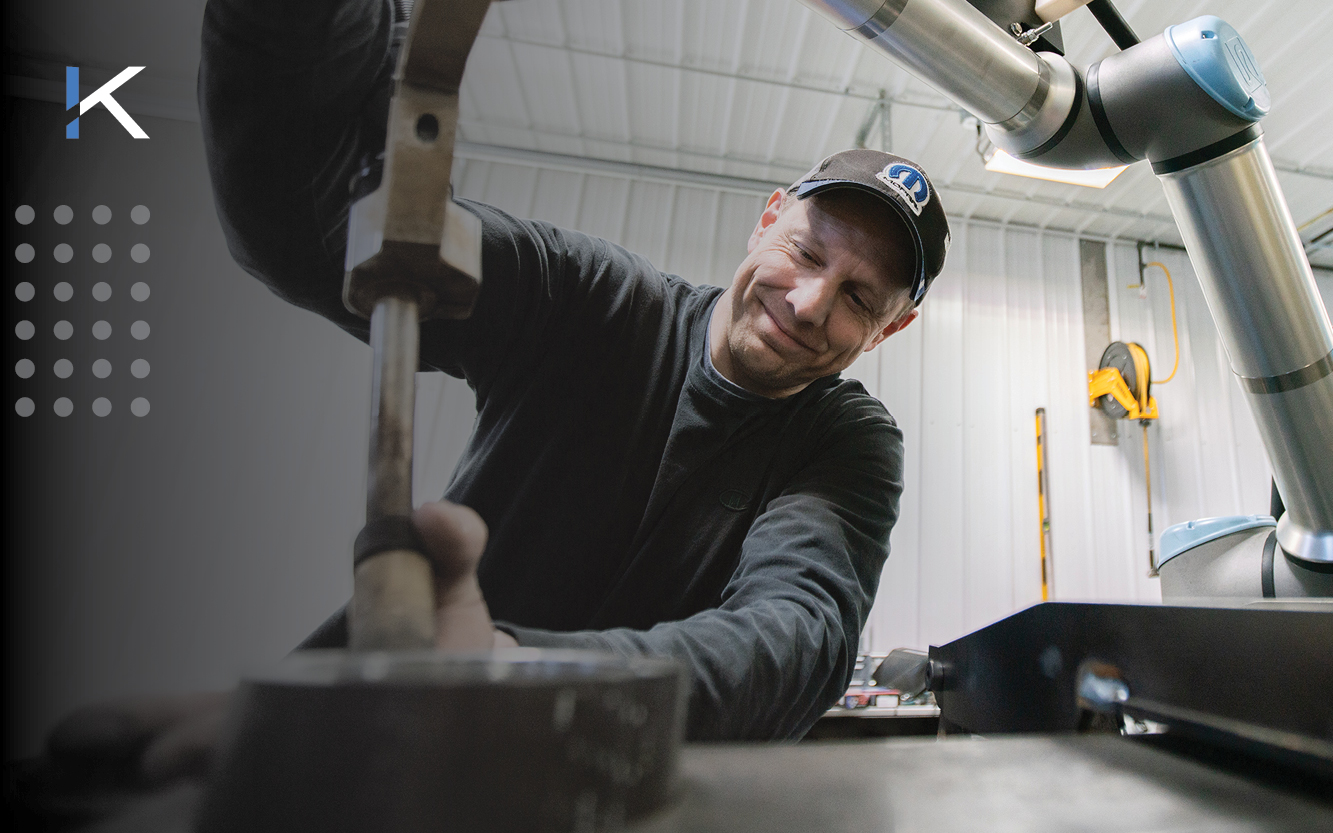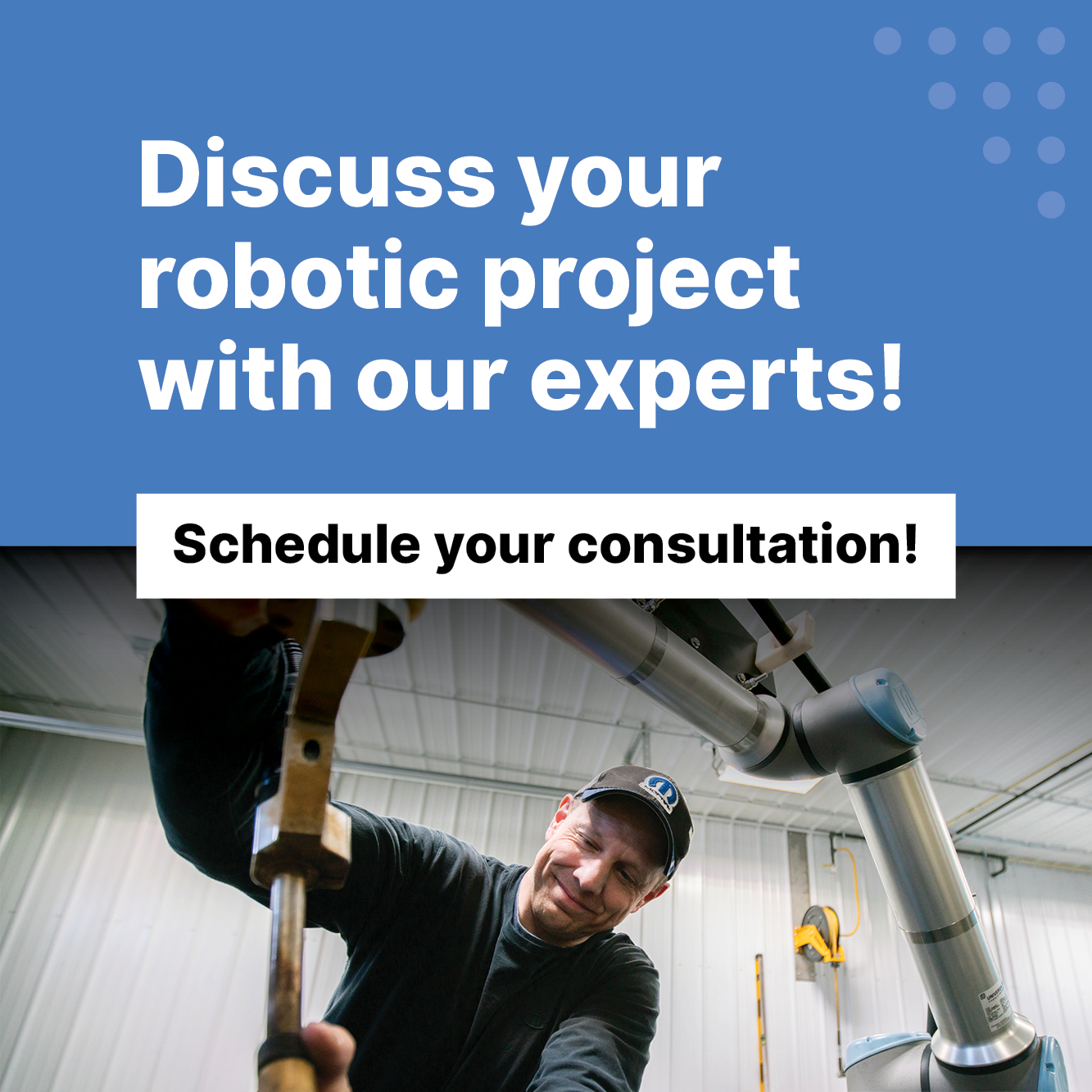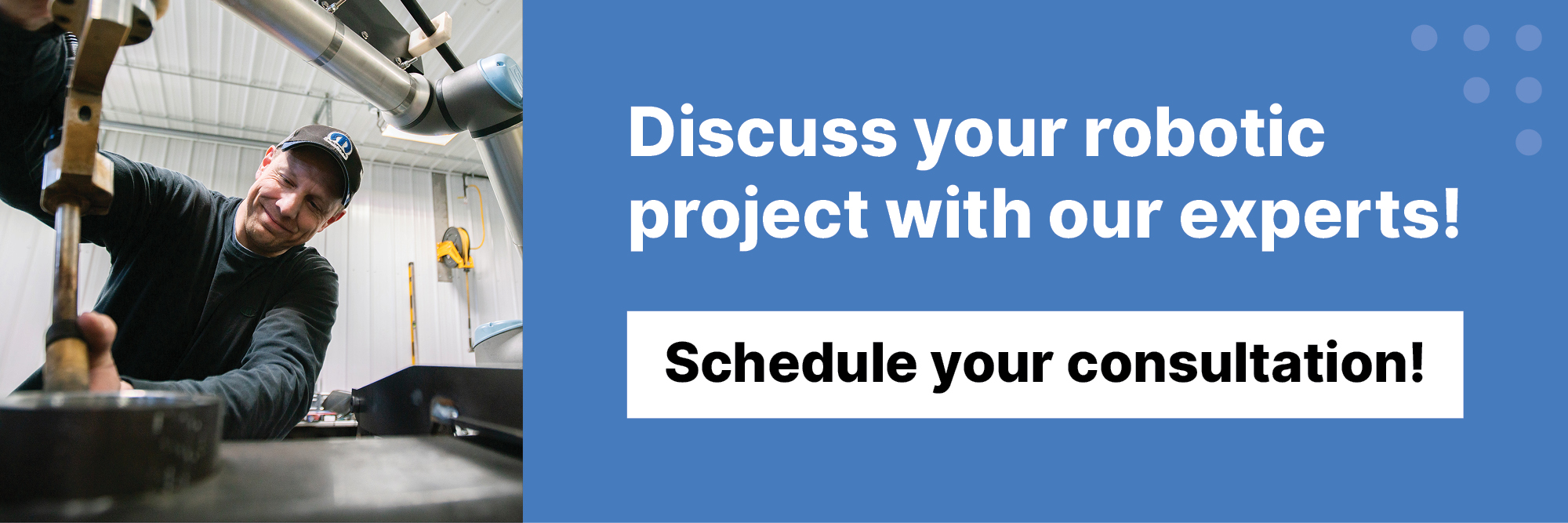Integrating advanced welding systems into your manufacturing process comes with unique challenges.
Whether it’s ensuring the quality and reliability of your automation systems or finding solutions tailored to your specific needs, getting it right is crucial.
If you’re looking to overcome these hurdles and achieve seamless robotic welding integration, you’re in the right place. In this article, we explain what you should look for in an integration partner to ensure your project is a success.
In this article
• Understanding Robotic Integration Needs ›
• ISO 9001 Certification and Robotic Welding Integration ›
• The Last Mile Integration ›
• Kinetic’s Five-Step Automation Process ›
• Kinetic Technologies Guarantee ›
• FAQ ›
Understanding Robotic Integration Needs
As a manufacturer, you encounter unique challenges when integrating automation into your processes. These include:
• Complexity of automation systems: Integrating robotic welding cells requires a deep understanding of both the technology and the specific manufacturing environment.
• Defining requirements: It can be difficult to define the requirements for an automation system, leading to potential mismatches between the solution provided and the actual needs.
• Customization needs: Every manufacturing setup is unique and requires customized solutions rather than off-the-shelf systems.
• Training and support: Staff need to be trained to operate and maintain the new system. Ongoing training and support from the supplier is crucial for long-term success.
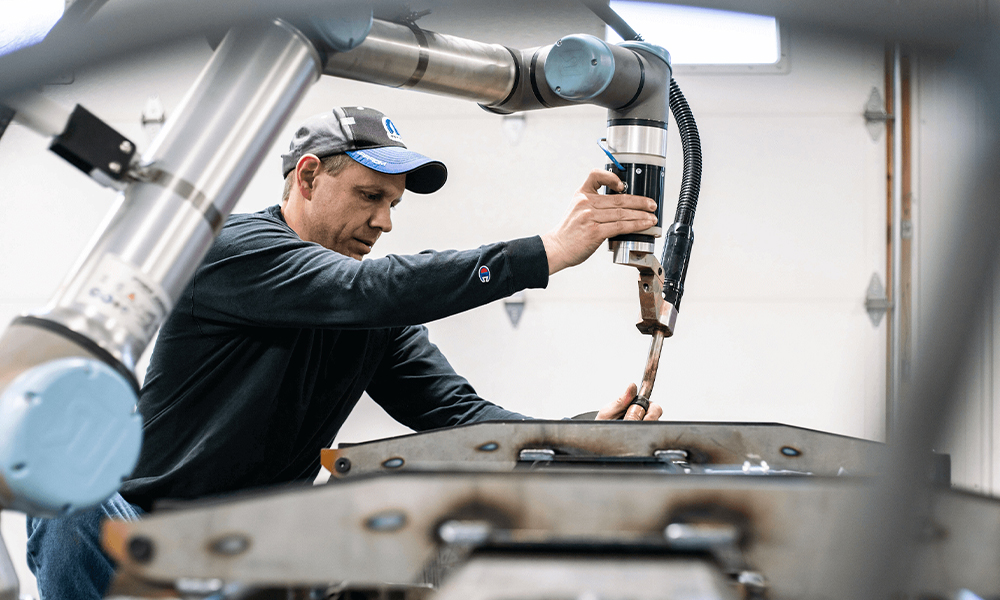
The Need for Expert Guidance
Experienced integrators help define precise automation requirements and provide tailored solutions that meet specific needs. Their expertise ensures that the integration process is seamless, with minimal downtime.
Here are a few factors to consider when choosing an integration partner.
ISO 9001 Certification and Robotic Welding Integration
ISO 9001 isn’t just a certificate on a wall; it’s a commitment to excellence. This certification ensures that every aspect of the integration process, from design to installation, meets the highest industry standards. It means that every system is rigorously tested and evaluated by third parties to guarantee it performs as promised.
“ISO 9001 is important to us because we want to not just say we do quality things; we want to show that we have done what the industry believes is the quality thing,” says owner Mark Barglof, emphasizing the company’s dedication to quality.
So, why does ISO 9001 matter when choosing an integrator? Here’s what sets an ISO 9001-certified integrator apart:
• Consistency and reliability: An ISO 9001-certified integrator follows standardized procedures, ensuring consistent and reliable results. This reduces the risk of errors and increases the dependability of the automation systems.
• Customer satisfaction: The certification focuses on meeting customer needs. This means that an ISO-certified integrator is committed to delivering solutions that truly address your specific challenges.
• Continuous improvement: ISO 9001 requires continuous evaluation and improvement of processes. An integrator with this certification is dedicated to refining their practices and staying ahead of industry advancements.
• Third-party validation: The certification process involves independent audits, providing an unbiased assurance of quality. This third-party validation means you can trust the integrator’s commitment to high standards.
Choosing an ISO 9001-certified integrator ensures that your robotic welding integration is in expert hands. It’s about more than just installing a system; it’s about partnering with a company that prioritizes quality, reliability, and continuous improvement.
The Last Mile Integration
Many integrators set up your system and leave; they don’t provide additional training or support to help you “iron out the wrinkles.” Small adjustments are always needed to make sure your system performs to its full potential. This is where the concept of “last mile” integration comes in.
Our “last mile” integration means we don’t consider the job done until your system is working exactly as you need it. We aren’t satisfied until you are!
Why It Matters
Choosing an integrator who commits to last mile integration ensures your system isn’t just installed but is optimized for peak performance. You get:
• A system that works: The setup is fine-tuned to meet your specific needs.
• Ongoing support: If any issues arise, you can count on your integrator to fix them, ensuring minimal downtime and continuous operation.
• Peace of mind: Knowing that the integrator will stay until everything is running perfectly makes the whole process a lot less stressful.
“Take all of those things that you don’t see on the trade show floor, all those things to modify this cell to make it so that it works in your operation. That’s that final mile, the last mile of integration,” Mark Barglof.
Kinetic’s Five-Step Automation Process
Here is what you can expect when you partner with Kinetic Technologies.
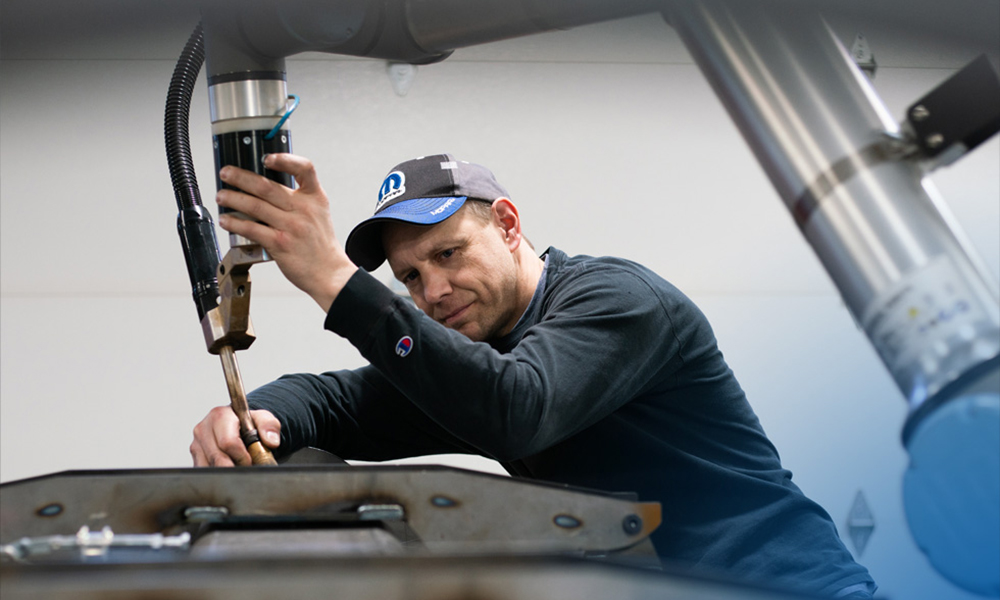
1. Design Consulting Services
We offer detailed design options and modifications using advanced software like SolidWorks and RoboGuide. We conduct thorough ISO risk assessments and create comprehensive design packages to propose to our customers.
2. Custom Manufactured Components
With in-house capabilities for CNC machining and custom fabrication, we can create customized components including positioners that perfectly fit your needs.
3. Best-in-Class Robotics Integration
We seamlessly integrate industry-leading robotic systems into the manufacturing process. We perform rigorous Factory Acceptance Testing (FAT) in our facility to ensure all systems are fully functional before installation.
4. Onsite Installation and Training
We handle everything from the physical assembly and Site Acceptance Testing (SAT) at your location. We provide comprehensive operator training and maintenance education to ensure smooth operation and long-term success.
5. Ongoing Service and Support
We commit to long-term partnerships with continuous support and maintenance, ensuring that the automation systems remain efficient and effective over time.
Kinetic Technologies Guarantee
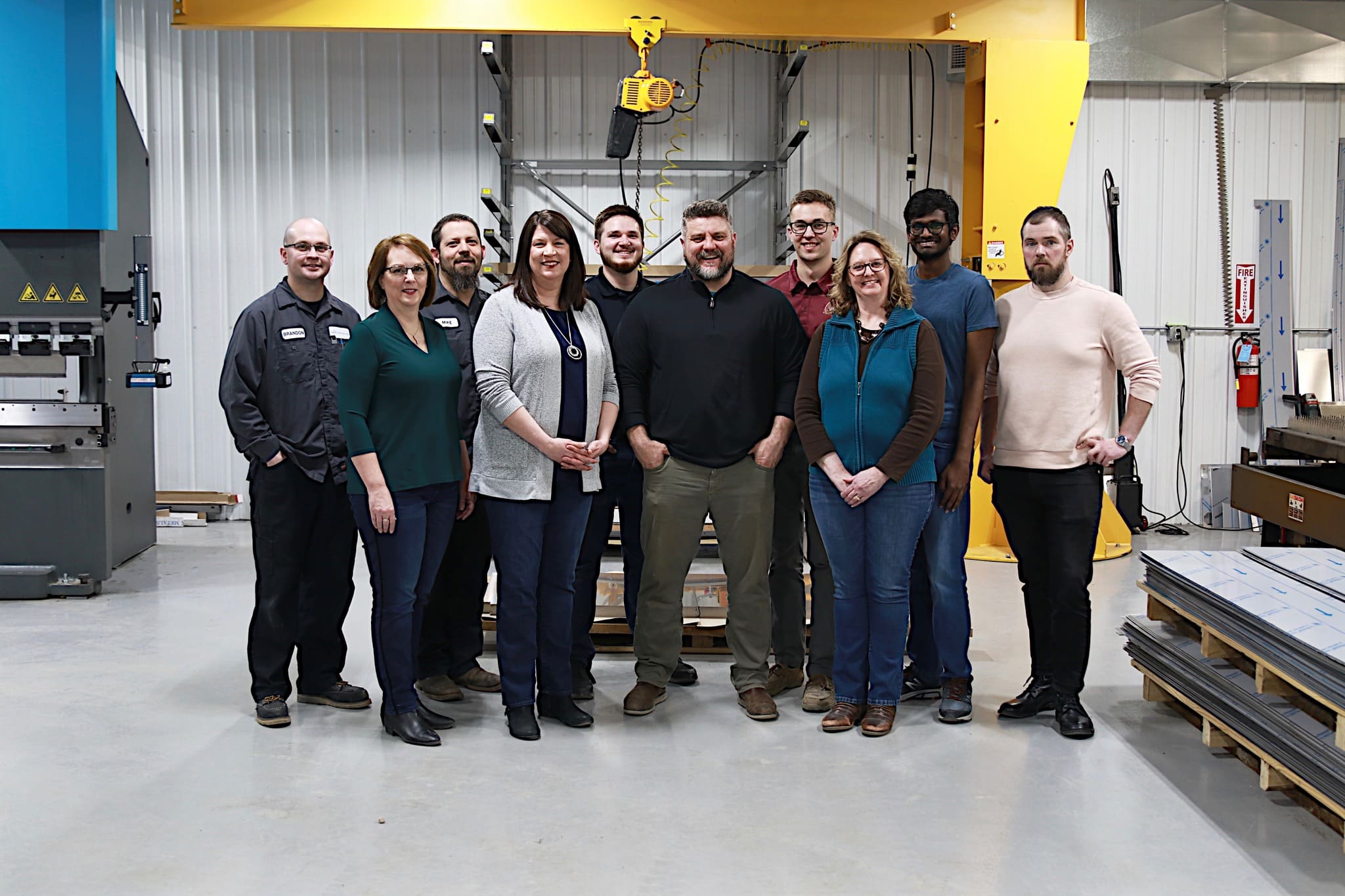
Investing in automation is a big commitment, so you want to make sure your integration partner is as committed to your success as you are.
Choose a partner that is committed to helping you reach your goals and shares your vision for the future.
“We want to be a partner that’s with them for the long term,” Mark says. “This is a Midwest company built on integrity, our core values, and number one is integrity. We don’t lie, cheat, or steal or tolerate anyone who does. And that runs through everything we do.”
Choosing a partner who values integrity and quality means you can trust your systems are in good hands, not just at installation but for the long haul. Request a consultation to learn how our expertise and commitment can help you achieve your automation goals.
FAQ
How do I choose the right robotic welding integrator for my business?
Consider their experience, customization capabilities, and support services. Look for integrators with a proven track record and industry experience. They should be able to provide custom solutions tailored to your needs. Kinetic Technologies offers experience, tailored solutions, and comprehensive support to ensure your project’s success.
What are the benefits of using a robotic welding integrator?
Integrators bring specialized expertise in handling complex systems, ensuring efficient implementation. They tailor solutions to meet your specific production needs. Integrators provide ongoing support and training, so your team can operate and maintain the systems.
How much does it cost to hire a robotic welding integrator?
The cost varies based on project complexity, customization needs, and the scope of services required. Generally, integrators provide detailed quotes after assessing your specific needs, ensuring transparency in pricing. Factors that influence cost include the type of robots used, the level of customization, and the extent of training and support services provided .
How long does it take to implement a robotic welding system?
Implementation times vary depending on the complexity of the project and the specific requirements. Generally, it can take anywhere from a few weeks to months. The timeline includes design, customization, installation, testing, and training phases.


